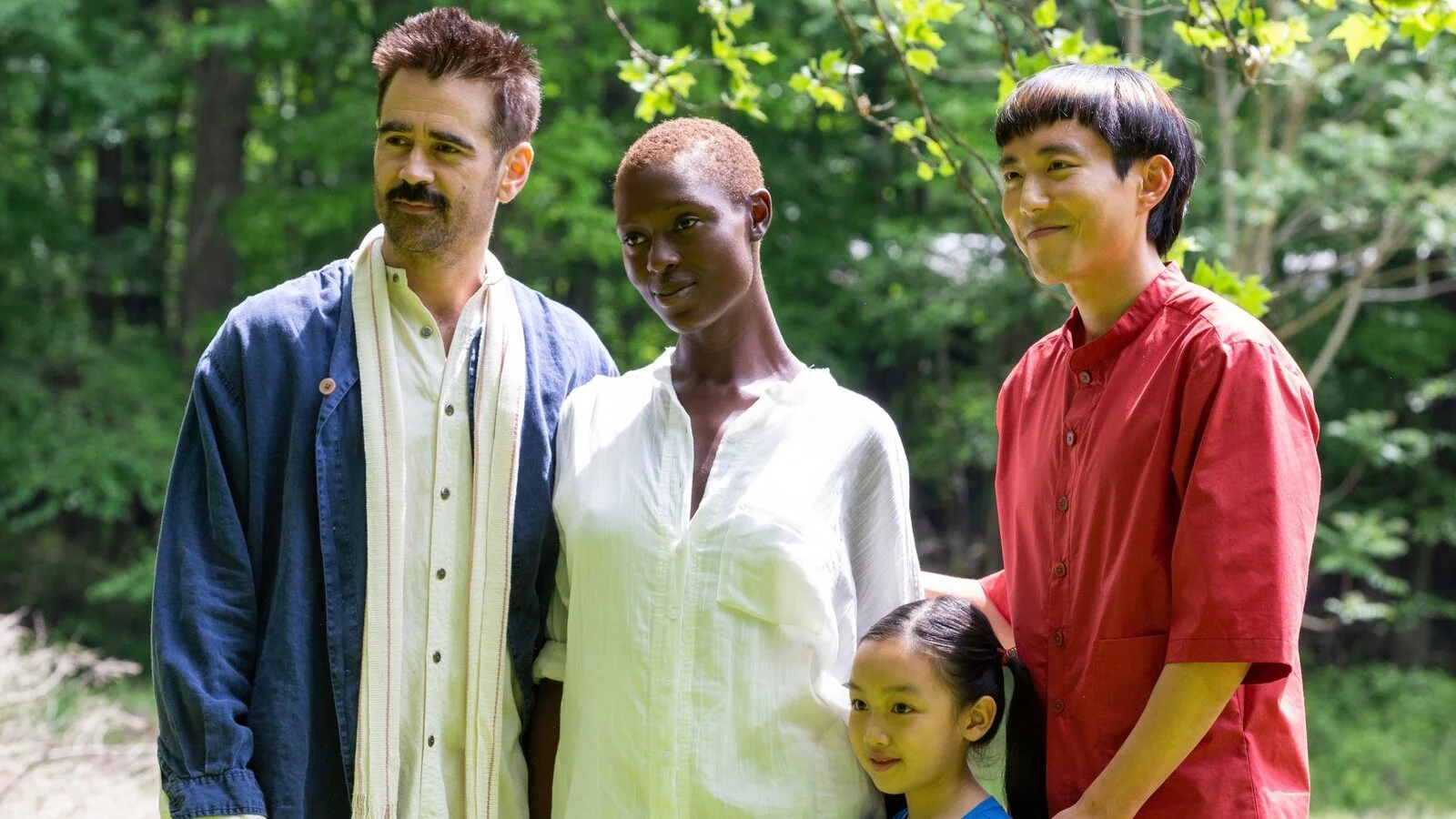AFTER YANG
Directing: B
Acting: B+
Writing: B
Cinematography: B+
Editing: B
After Yang is set in a supposed “near future,” although that phrase always makes me want to ask for their definition of “near.” The world presented here is largely recognizable to our own, just with a few details fairly expected of a future we’re likely to see in our lifetimes: self-driving cars being commonplace, or all clothing being made of exclusively natural materials. The premise involves the breaking down of an android “older brother” for an adopted Chinese daughter, though, and I’m not convinced that sort of thing will be commonplace within our lifetimes. At least, not where the “virtual assistant” is indistinguishable from flesh and blood humans, and, as ultimately discovered by the plot here, capable of sentimentality.
There was a lot more I wanted to know about the world of this movie, which writer-director Kogonada seems pointedly uninterested in revealing. There’s a moment when a character refers to a documentary “from the twentieth century,” a kind of phrasing we’re still not really hearing, more than two decades into the 21st. Maybe this is meant to be set in the latter half of the 21s century? This is never made clear. There are occasional backdrops of a cityscape that slightly suggests San Francisco but is otherwise unrecognizable.
When it comes to plausibility, admittedly I sometimes get stuck on details probably most people don’t much care about. For instance, setting this in the latter half of the 21st century seems plausible enough, until we learn that these robots basically used as nannies—and, in the case of this child, cultural heritage education—have clearly already been in use for decades. That’s when it starts to make less sense, unless we are to think of this as the 22nd century. In which case, “near future” doesn’t quite make sense.
I’m nitpicking, I know. It’s what I do! What’s the state of the environment in this future universe? Why is the purchase of a “techno” (the word used here; the script never includes words like “robot” or “android”) older brother, specifically for adopted Chinese children, evidently a common thing? Are parents Jake and Kyra (Colin Farrell and Jodie Turner-Smith) incapable of having children, while China is overflowing with orphans? To a degree, that is the case already. But After Yang examines none of the geopolitical implications of the world being presented.
Instead, After Yang uses the “techno” older brother, Yang—played with precision by Justin H. Min—as a catalyst for processing grief and loss. Jake and Kyra have taken Yang’s help a little too much for granted, using him for more parenting duties than just as his intended purpose as a “Chinese older brother.” When shuts down unexpectedly and can never be rebooted, Jake spends a large amount of time finding people who might find a way to repair him. The adoped little girl, Mika (Malea Emma Tjandrawidjaja), goes through separate stages of grief in this process, including denial and, ultimately, acceptance.
In Jake’s pursuits, he uncovers some surprising facts about Yang, which are either fascinating or sort of heartbreaking, depending on the observer’s point of view. All of this is done in a beautifully shot, quiet tone. As such, After Yang feels a little like Showtime’s direct-to-streaming answer to Apple TV+’s Swan Song, which is set in a similarly slickly designed “near future,” is similarly quiet in tone with mostly hushed-voice line deliveries, and has some thematic parallels with cloning, something that also exists in After Yang as part of a pertinent subplot.
I enjoyed both of these movies about the same. I signed up for a free trial of Showtime’s streaming service just to watch After Yang, though—it had limited theatrical release the same date it debuted on Showtime March 4, but not in any theaters near me—and I’m not sure it was necessary. After Yang is never boring, and it has some subtly provocative ideas, and a 96-minute run time is very much in its favor. I could easily recommend both this and Swan Song, but they are so similar in execution, you don’t need to sign up for two streaming services just to see them both. Just one of them is sufficient.
The family of the near future.

